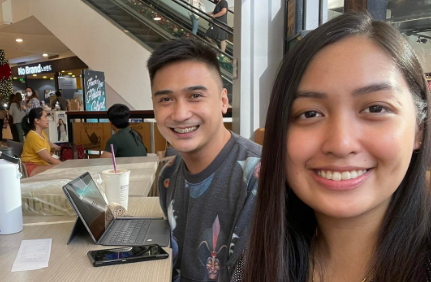Written by: Ysabela Calderon
The devolution of the Philippine Healthcare system in 1991 completely shifted the delivery of care for Filipinos. In the current system, the management of healthcare units has been transferred from the national level to the local, provincial, city, and municipal levels. While this gives power to the local government to implement their healthcare services, it also affects the quality of care delivered, given the lack of financing of services and a decline in the maintenance of health infrastructure facilities. The quality of care being delivered is even more affected for sexual and gender minority (SGM) patients who continue to experience stigma and discrimination even when seeking medical care.
Discrimination, limited health services, lack of gender sensitivity among health professionals, and an unwelcoming environment are some barriers SGM patients face that hinder them from receiving quality health services. Compared with heterosexual and cisgender populations, SGM people are more likely to suffer from serious health conditions and insufficient access to health services (Willging, 2020). Ingrained mechanisms of stigmatization rooted in sexual and gender differences also create unsafe environments for SGM patients seeking healthcare services. This further aggravates health inequities and disparities being experienced by SGM people.
To address this problem, our group proposed and implemented a project under the Babaylanes Equality Fellowship, which sought to develop a workshop module on SOGIESC inclusivity and SGM sensitivity. This project is inspired by the SOGIESC, Well-Being, and Inclusion in the Workplace Workshop Module created by Babaylanes Inc., but ours would specifically cater to the health sector. We designed the workshop for people working in healthcare delivery, particularly primary health workers in health centers. This group may include physicians, nurses, midwives, and barangay health workers. These key players are the first contact of care in communities. Through an inclusive healthcare module, healthcare workers (HCWs) will be trained and equipped to handle the needs of LGBTQI patients and provide the best possible treatment and care.
Planning for the project commenced in August of 2022, but preparations began months prior through a series of discourse and discussion sessions on SOGIESC and LGBTQI+ rights. These include topics on leadership and advocacy, effective advocacy communication, intersectionality, human rights advocacy, LGBTQI issues and protection, project management, community organizing, and lobbying. We thank Babaylanes, Inc. for providing the information and resources we need to produce and implement our project. We have also sought the expertise of Dr. Anthony Cordero, the director of the Community Health & Development Program of UP Manila and an associate professor at UP College of Medicine.
The expected outcome of this project is to equip organizations and individuals with a user-friendly inclusive healthcare module on conducting a gender-sensitivity workshop appropriate for the healthcare setting. The final module is expected to run for 3 hours and may be conducted among 15 to 25 participants. The module includes sessions on:
- Concepts of basic SOGIESC,
- Gender, sex, and SOGIE as a determinant of health, and
- Gender and SOGIE-sensitive healthcare.
At the end of each part of the workshop, we strive to embark to the audience the following key messages:
- Each individual has their own SOGIESC,
- Gender biases, as a social determinant, affect how one accesses health and how the system delivers healthcare, and
- Enacted personal and structural gender biases and sexual stigma translate to health disparities in terms of worse morbidity and mortality conditions among sexual and gender minorities.
To test run the module, our group planned to conduct a validation workshop among HCWs of a Rural Health Unit. One of our group members, Jerry Alejo, works as a municipal health doctor in Quezon province. He agreed to partner with their health unit for the validation workshop. Unfortunately, we cannot share pictures of our validation workshop with the staff of Quezon RHU as this is yet to be conducted on January 16, 2023.
For our group, this BEF project is just one of the first steps to achieving inclusive healthcare in the Philippines. We recognize the limitations of our project and the sad reality that healthcare delivery in the Philippines, even among non-SGM patients, still needs to improve. Still, we are grateful to Babaylanes Inc. for helping us turn our ideas and hopes into a reality. There are still many things to do to advocate for the protection and rights of SGM and the LGBTQI community. Projects like this make such advocacy come to life by achieving tangible results in how sectors strive to improve relations with the LGBTQI community and eradicate stigma and discrimination.

